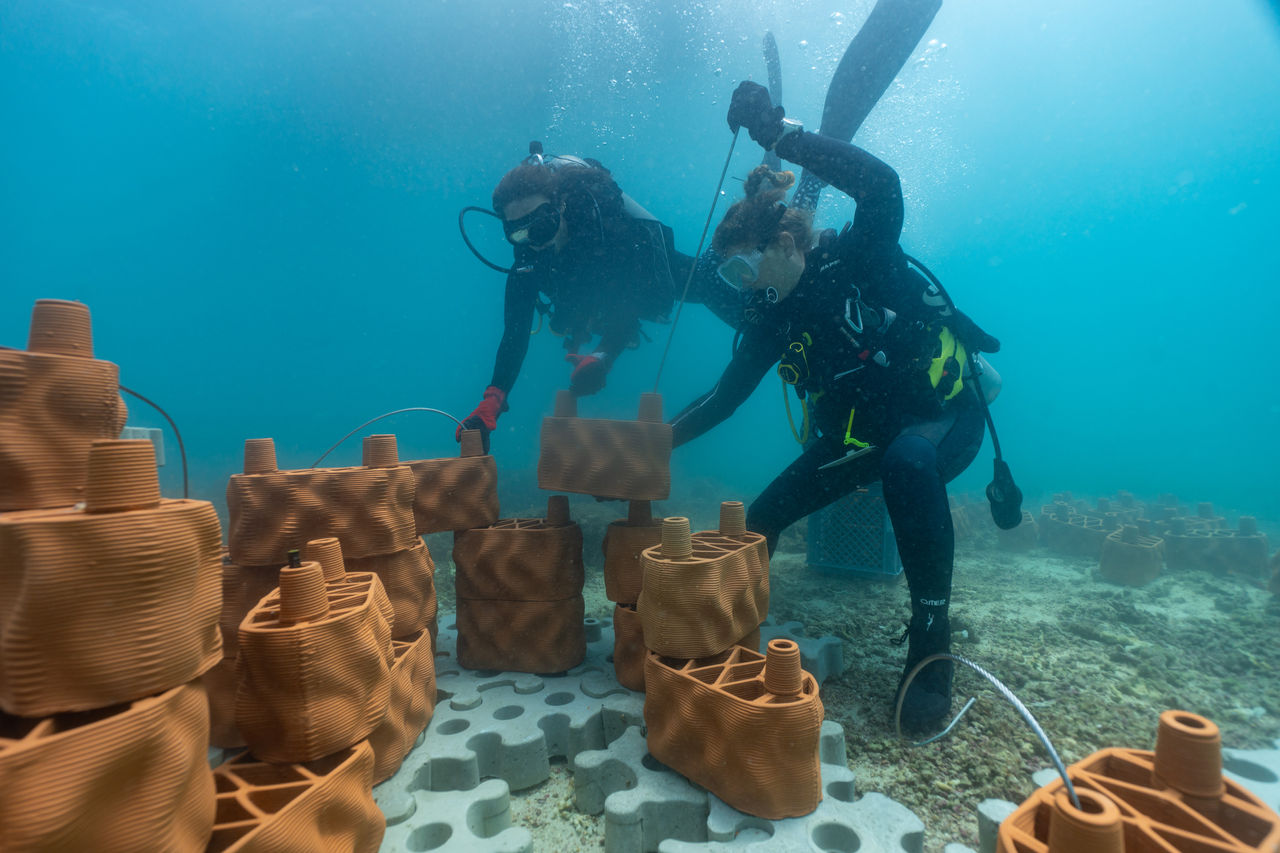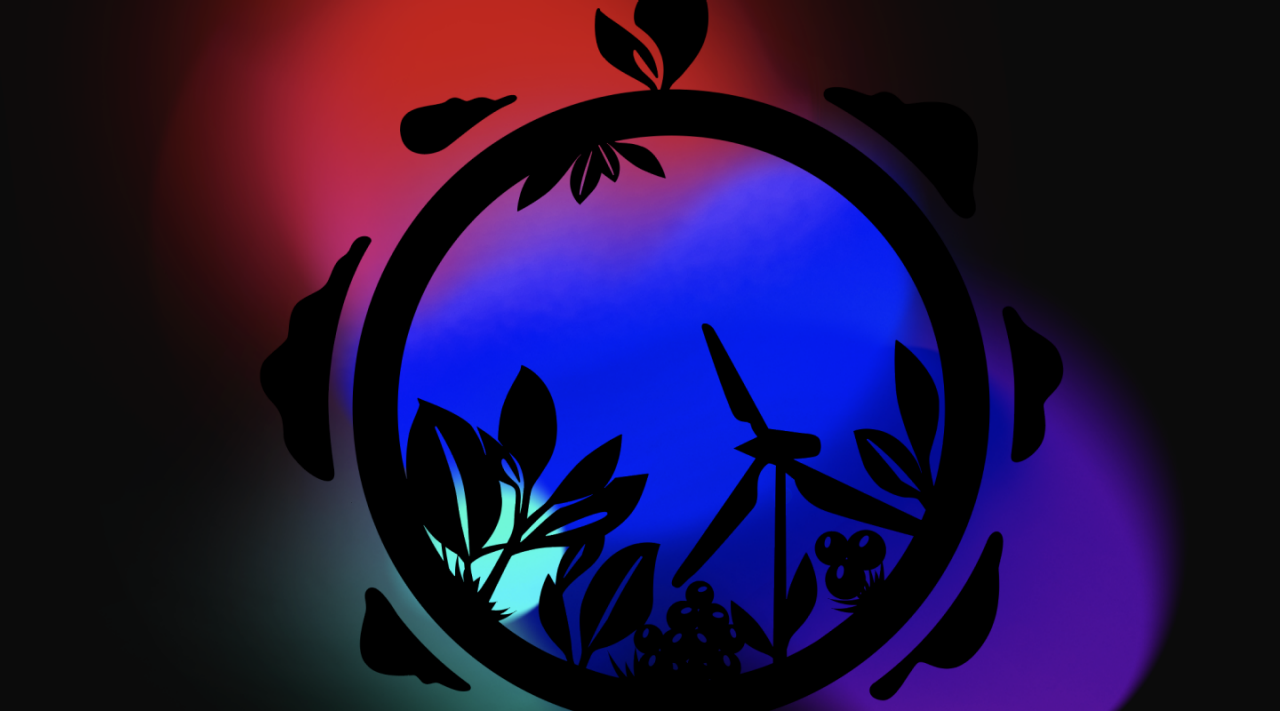New life under water and economic recovery on land


Just over a year ago, the Melitta Group built an artificial coral reef off the coast of Ecuador together with the organization "rrreefs". The results are impressive: it offers many fish and corals – including endangered species – a new home and turns out to be a tourist magnet.
In May 2024, together with the Swiss start-up "rrreefs" and the local organization Conservación Marina Ecuador (CONMAR), we installed a 20-square-meter coral reef off Isla El Sucre in Machalilla National Park. The project is the first measure of its kind in the Eastern Pacific – a region where about 70 percent of coral reefs have been lost in recent decades.
The reef system consists of interlocking clay bricks produced by a 3D printer. This structure provides an ideal habitat for various species of fish, corals and other marine life and was developed by the Swiss start-up "rrreefs". The company aims to rebuild, and regenerate coral reefs, providing new habitats for various species of fish, crustaceans and molluscs.





Refuge for octopuses
After a year of intensive scientific observation, the results are promising. The fish diversity on the artificial reef has increased significantly over the past year – it now even exceeds the values of the natural reef in the area.
Particularly pleasing is the settlement of corals of the genus Pocillopora, which are on the Red List of Endangered Species. Some of these corals have already reached a diameter of 6.5 cm. The number of invertebrates on the artificial reef is also 63 percent higher than at the control point.
An unexpected success: The reef has established itself as a popular refuge for octopuses. Already during the construction phase, octopuses were observed using the clay bricks as a hiding place and collecting coral debris from the surrounding area to protect themselves.




Positive effects also over water
The project not only has a positive impact on the underwater world, but also on the local community of Los Ciriales in Ecuador. The fisherfolk have been involved in the project from the beginning – they have helped with the construction of the concrete foundations, transported material and some with diving experience have helped sink and build the reef.
This collaboration has raised awareness of coral reef conservation and created new sources of income. The reef has become a tourist attraction that increases the income of the local community and positions Los Ciriales as a sustainable tourism destination.
"I don't hunt octopuses anymore, now I take care of them. Because I know that a live octopus is worth more than a dead animal," says Jesús, a fisherman and coral reef guard from the community.
Long-term prospects
The Coral Reef Project is an example of how businesses, academia and local communities can work together to protect the oceans. It shows that environmental protection and economic development can go hand in hand.
Biodiversity and its significance for the Melitta Group
Biodiversity refers to the diversity of life on earth – from plants and animals to microorganisms and their habitats. A distinction is made between the diversity of species and the genetic diversity within individual species. Both are the basis for functioning ecosystems, from which the Melitta Group also benefits directly and indirectly. As a company that relies on natural raw materials such as coffee and paper, protecting biodiversity is key. After all, biodiversity ensures the quality and availability of our products in the long term.
Through sustainable procurement and targeted environmental projects, the Melitta Group is actively committed to the preservation of biodiversity. For example, in the coffee sector, more resistant variants of the coffee plant are being bred that can better cope with higher temperatures or certain diseases. The protection of biodiversity is therefore an important part of the Melitta Group's corporate responsibility and sustainable business development.



